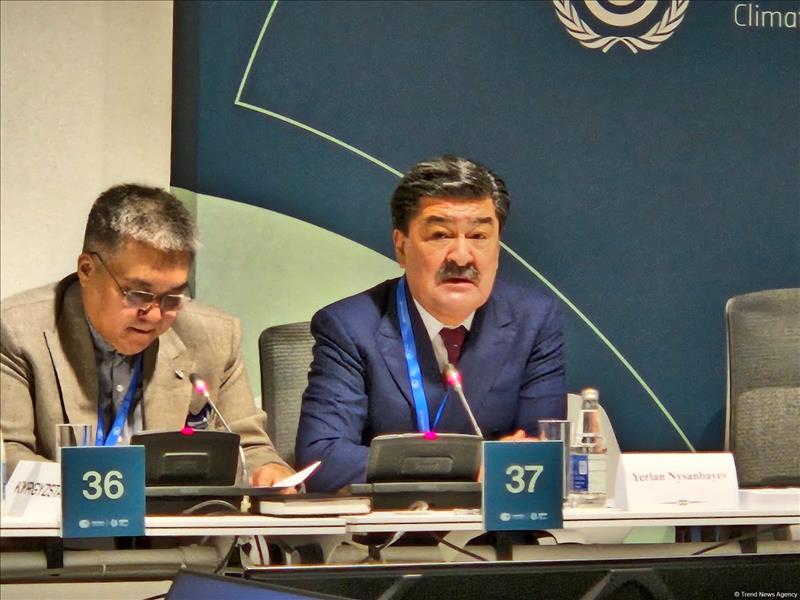
Kazakhstan Calls For Int'l Efforts For Sustainable Development Of Landlocked Countries - Minister
The minister noted that Kazakhstan, as a landlocked country, is deeply aware of the variety of challenges faced by such states, especially in the context of global climate change.
“We are facing the growing impacts of climate change, such as extreme weather events, changing water resources, and deteriorating food security, which increases our vulnerability. These challenges are compounded by geographical limitations and difficulties in integrating into the global economy,” Nyssanbayev emphasized.
According to him, it requires strong cooperation between countries and international organizations to address these challenges.
“Together we can make a meaningful difference by expanding access to climate finance, strengthening sustainable infrastructure, and harnessing the power of innovation. Kazakhstan is committed to strengthening partnerships both within the LLDCs community and with international partners,” he said.
The minister expressed confidence that such initiatives will help ensure a sustainable future for all countries facing similar challenges.
To note, the 29th session of the Conference of the Parties to the UN Framework Convention on Climate Change (COP29), which will run until November 22, opened at the Baku Olympic Stadium on November 11. It is the largest event organized by Azerbaijan to date, and the first time in the region that it is being held in Azerbaijan.
Within COP29, the highest level event - the summit of world leaders on climate action – was held on November 12–13.
The main expectation from COP29 is to agree on a fair and ambitious New Collective Quantitative Goal (NCQG) on climate finance. The COP29 chairmanship has launched 14 initiatives that include linkages between climate action and the Sustainable Development Goals, including green energy corridors, green energy storage, harmony for climate resilience, clean hydrogen, methane reduction in organic waste, action on green digital technologies, and other topics.
In addition to being a top priority that creates the conditions for action, creating climate finance will also help fulfill the 1.5°C pledge by bringing everyone together.
The UN Framework Convention on Climate Change is an agreement signed at the Rio Earth Summit in June 1992 to prevent dangerous human interference in the climate system. The acronym COP (Conference of Parties) stands for“Conference of Parties” and is the highest legislative body overseeing the implementation of the Framework Convention on Climate Change.
A total of 198 countries are parties to the Convention. Unless otherwise decided by the parties, COP is held annually. The first COP event was held in March 1995 in Berlin, and its secretariat is located in Bonn.

Legal Disclaimer:
MENAFN provides the
information “as is” without warranty of any kind. We do not accept
any responsibility or liability for the accuracy, content, images,
videos, licenses, completeness, legality, or reliability of the information
contained in this article. If you have any complaints or copyright
issues related to this article, kindly contact the provider above.


















Comments
No comment